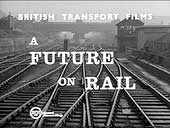
A Future On Rail (1957)
9 minutes


Compiler & Editor: John Legard
Commentary: Paul le Saux
Narration: Frank Duncan
Producer: Edgar Anstey
Certificate: U
Distributor: New Realm
16mm & 35mm (784 ft.)
Review in Monthly Film Bulletin - March 1960 (spotted by Robin Carmody) These three new British Transport documentaries indicate the current determination of many writers and directors, working on subjects somewhat lacking in immediate appeal, to humanise such topics by concentrating on the people behind the work rather than the job itself. But while all three suggest the problem posed by such an approach, none of them get very far towards a solution. A Future on Rail, the shortest and best of the three productions, is a recruiting film which offers widespread modernisation as a bait for railway employees. "The day isn't far off", it concludes, "when there'll be quite a few wishing they'd joined in while they had the chance". Apart from being the most unfortunately mistimed film to appear for years, this production is considerably more disciplined than the other two, and Paul Le Saux's breeziness is for once reasonably restrained. But the lack of real creative imagination becomes apparent when the film shows an engine driver being won over, despite himself, to the benefits of working on diesels during his first run. A potentially rewarding sequence is treated so flatly that the opportunity for real humanism is quite lost. (Robin notes: "mistimed" reference refers to the announcement in early 1960 that the modernisation plan was going to go much further than previously planned, and that certain lines would not survive: certainly Macmillan made a speech to the Commons around that time where he pretty much made it clear that something like Beeching would probably have to happen. I can understand the point about Le Saux's style - it has dated badly, though I think the tendencies that alienate and grate with most people today would only really have had those effects on leftist intellectuals, i.e. most MFB contributors, 50 years ago.)
(Joint review of Fully Fitted Freight, Groundwork for Progress and A Future on Rail)
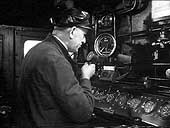
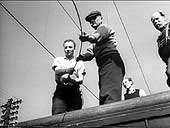
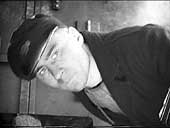

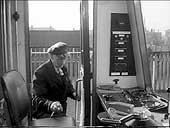
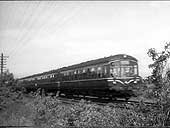
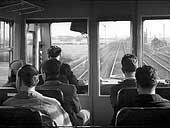


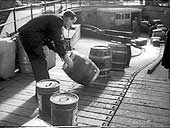
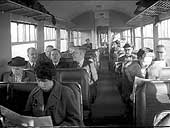
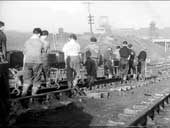
 Actual screen shots reproduced by kind permission
Actual screen shots reproduced by kind permissionof the British Film Institute.
